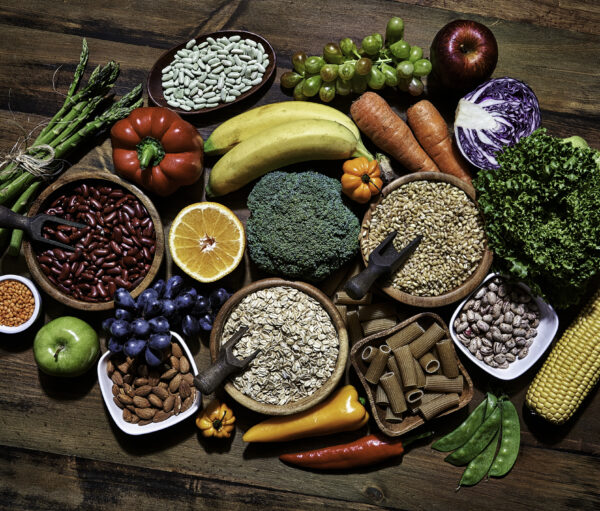Fiber is Good for the Gut

In the quest for optimal health, fiber stands out as a necessary but often overlooked component of our diet. This humble nutrient, found in the cell walls of plants, offers myriad health benefits, ranging from improved digestive health to reduced risk of chronic diseases. Yet, many of us struggle to meet the recommended daily intake. What’s worse, scientists are finding that modern diets in industrialized nations are so lacking in fiber that it is actually changing our intestinal flora. We are beginning to lose the specialized, cellulose-digesting bacteria that processes fiber in our digestive system.
“Our ancestors in Africa 200,000 years ago did not pick up lunch from a drive-through, or phone in a home-delivery for dinner,” says William Martin, evolutionary biologist and author of the study. In Western societies this does, however, happen on a large scale. Diet is changing in industrialized societies, far removed from the farms where food is produced. This shift away from a fiber-rich diet is a possible explanation for the loss of important cellulose-degrading microbes in our microbiome, the study says.
The good news is the solution is simple—eat more fiber!
The importance of fiber
Fiber comes in two varieties: soluble and insoluble. Both types play a key role in our health but function differently within the body. Soluble fiber dissolves in water, forming a gel-like substance that helps regulate blood sugar levels and lower cholesterol. Insoluble fiber, on the other hand, does not dissolve in water. It adds bulk to the stool and helps food pass more quickly through the stomach and intestines, promoting regular bowel movements and preventing constipation.
The benefits of a high-fiber diet are well documented and far reaching:
- Digestive health: Fiber helps prevent constipation, hemorrhoids, and diverticulosis by increasing stool bulk and promoting regular bowel movements.
- Weight management: High-fiber foods are more filling than low-fiber ones, helping to reduce appetite and control weight.
- Chronic disease prevention: A diet rich in fiber can lower the risk of developing heart disease, diabetes, colorectal cancer, and stroke.
- Blood sugar control: For those with diabetes, fiber can slow the absorption of sugar and improve blood sugar levels.
- Despite these benefits, most adults consume less than half the recommended amount of fiber, which is 25 grams per day for women and 38 grams per day for men.
Incorporating more fiber into your diet
Boosting your fiber intake doesn’t have to be difficult or involve drastic dietary changes. Here are some simple strategies:
Start your day with whole grains: Choose whole-grain bread, cereals, or oatmeal for breakfast.
Snack on fruits and vegetables: Opt for raw vegetables, fresh fruit, or dried fruit snacks.
Choose whole fruit over juice: Whole fruits contain more fiber and less sugar than their juiced counterparts.
Incorporate legumes into meals: Add beans, lentils, or chickpeas to salads, soups, and casseroles.
Don’t forget nuts and seeds: Sprinkle them on salads, yogurt, or cereal for an extra fiber boost.
By making these small, manageable changes to your daily eating habits, you can significantly increase your fiber intake, leading to better health outcomes. Remember, it’s important to increase fiber gradually and maintain adequate hydration to prevent digestive discomfort. With these strategies in mind, you’re well on your way to a healthier, more fiber-rich diet.
This article is not intended to replace the advice of your healthcare provider.
Source: IlluminAge


